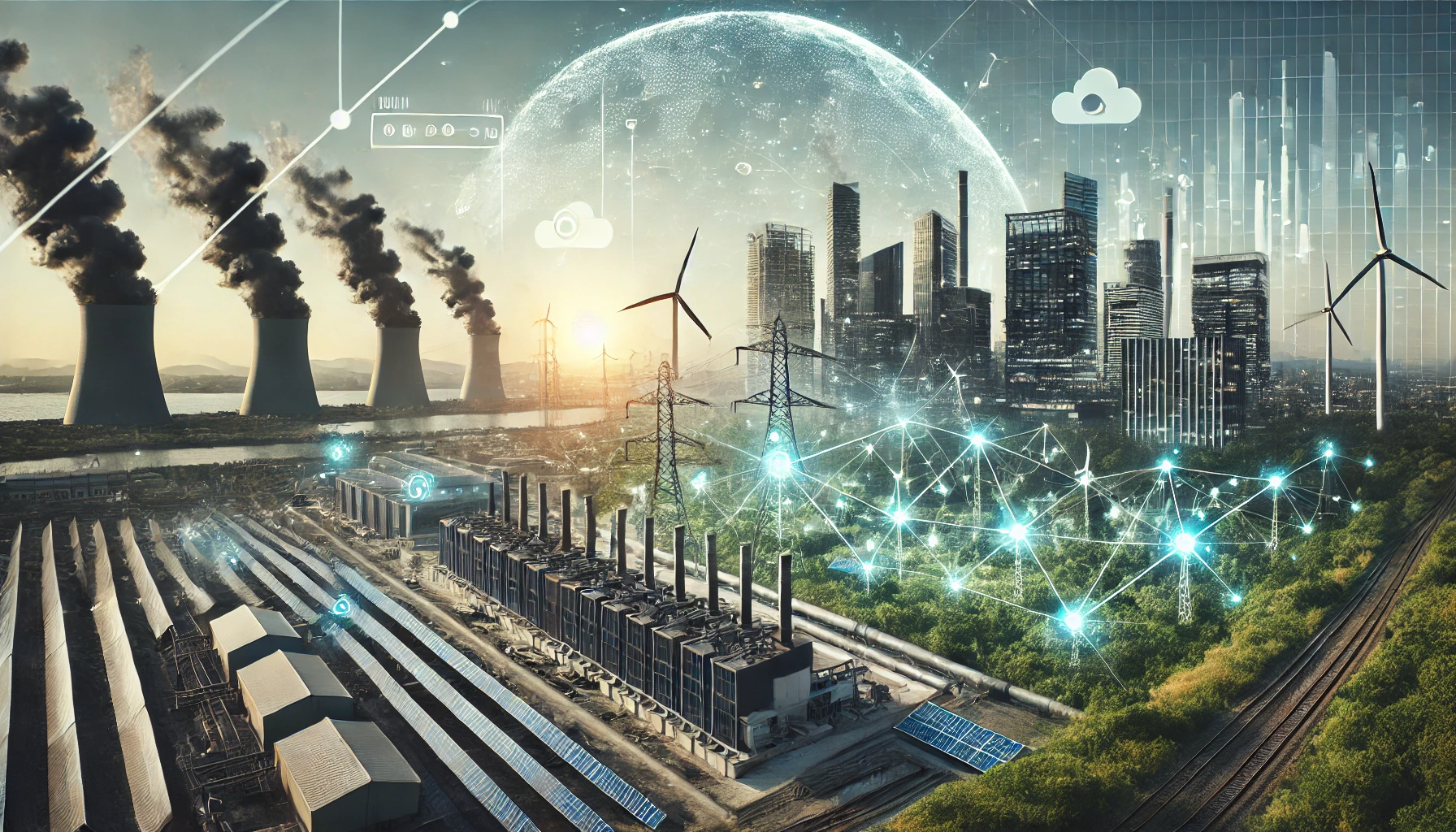Driving Down Coal Consumption: How Digital Economy Growth Leads to Cleaner Energy
A study from Chinese researchers reveals that digital economy development significantly reduces coal consumption by fostering financial technology growth and enhancing technological innovation, offering a pathway for sustainable economic growth.

A study conducted by scholars from Sichuan Minzu College, Sichuan University Jinjiang College, and Sichuan Tourism University delves into the impact of digital economy (DE) development on coal consumption across various Chinese provinces. This research, spanning from 2011 to 2022, offers critical insights into how advancing the DE can lead to a significant reduction in coal consumption, thereby contributing to the broader goal of reducing carbon emissions. The study's findings are particularly relevant for developing countries seeking sustainable economic growth, as they highlight the potential of the DE to serve as a key driver in transitioning away from coal-dependent energy sources.
Digital Economy’s Role in Reducing Coal Consumption
The researchers utilized a comprehensive dataset covering 30 Chinese provinces, deliberately excluding regions like Xizang, Hong Kong, Macao, and Taiwan due to the unavailability of complete data. The study employs a two-way fixed-effect (TWFE) model to rigorously analyze the relationship between DE development and coal consumption. The results demonstrate a clear correlation: as DE development increases, coal consumption decreases. Specifically, the study found that a one standard deviation increase in DE development is associated with a 0.1938 reduction in coal consumption. This finding underscores the significant role that DE can play in mitigating the environmental impacts of coal usage, particularly in rapidly industrializing regions.
Financial Technology: A Key Driver in the Transition
The mechanisms through which DE development influences coal consumption are twofold. First, DE fosters the growth of financial technology (fintech), which in turn facilitates easier access to financing for enterprises. This is crucial for coal-consuming enterprises that need to invest in technological upgrades to improve energy efficiency. The development of fintech reduces information asymmetry between banks and borrowing enterprises, thereby lowering credit risks and enabling banks to extend more credit. This increased access to credit allows coal-consuming enterprises to invest in energy-efficient technologies and processes, ultimately reducing their dependence on coal. The study's analysis revealed that fintech plays a partial mediating role in this process, suggesting that the growth of fintech driven by DE development is a significant factor in the observed reduction in coal consumption.
Technological Innovation: Enhancing Efficiency and Reducing Demand
Second, DE development enhances the quality of technological innovation, which further contributes to reducing coal consumption. The DE promotes digital industrialization and industrial digitization, both of which drive technological advancements. Digital industrialization involves the continued development of information and communications technology (ICT), leading to substantive technological progress, particularly in software and hardware related to communications. Industrial digitization refers to the application of big data, blockchain, artificial intelligence (AI), and other digital technologies in transforming traditional industries. These technological innovations improve the efficiency with which enterprises utilize natural resources, thereby reducing their need for coal. The study's findings indicate that improved technological innovation quality, driven by DE development, significantly lowers coal demand.
Robustness of Findings through Extensive Testing
The researchers also conducted a series of robustness tests to confirm the reliability of their results. These tests addressed potential endogeneity issues, where the relationship between DE development and coal consumption might be bidirectional. For instance, while DE development may reduce coal consumption, it is also possible that the pressure on coal-consuming enterprises to reduce emissions could drive them to adopt digital technologies, thereby contributing to DE development. To account for this, the researchers used an instrumental variable (IV) approach, which confirmed that DE development indeed reduces coal consumption even when potential endogeneity is accounted for. Additional robustness tests involved replacing both the dependent and independent variables, controlling for continuous time variables to account for time trends, and using different estimation methods. In all cases, the results consistently supported the initial finding that DE development reduces coal consumption.
Implications for Sustainable Growth and Future Research
The implications of this study are profound, particularly for policymakers in developing countries. As the world grapples with the challenges of climate change, identifying pathways to reduce carbon emissions without stifling economic growth is critical. This research suggests that promoting DE development could be an effective strategy for achieving these dual goals. By fostering fintech development and enhancing the quality of technological innovation, DE can help reduce coal consumption, thereby contributing to a reduction in carbon emissions. However, the study also acknowledges certain limitations, such as the use of provincial data rather than more granular data at the municipal level. Future research could explore whether these findings hold true at the city level, particularly in regions with varying levels of DE development. Moreover, while this study focused on fintech and technological innovation as the primary mechanisms through which DE affects coal consumption, there may be other pathways worth exploring. For instance, DE might influence coal consumption through changes in consumer behavior or shifts in energy policy, which could be avenues for future research. Overall, this study provides a strong foundation for understanding the potential of DE development to contribute to sustainable economic growth and environmental protection.
- FIRST PUBLISHED IN:
- Devdiscourse
ALSO READ
Transfer Deadline Day Frenzy: Top Soccer League Highlights
Thrilling Transfer Deadline Day: Major Moves in Top Soccer Leagues
Pennsylvania Court Protects Mail-In Votes Despite Envelope Errors
Trump Criticizes Transgender Rights at Moms for Liberty Event
Transfer Deadline Frenzy: Big Moves in the Premier League










